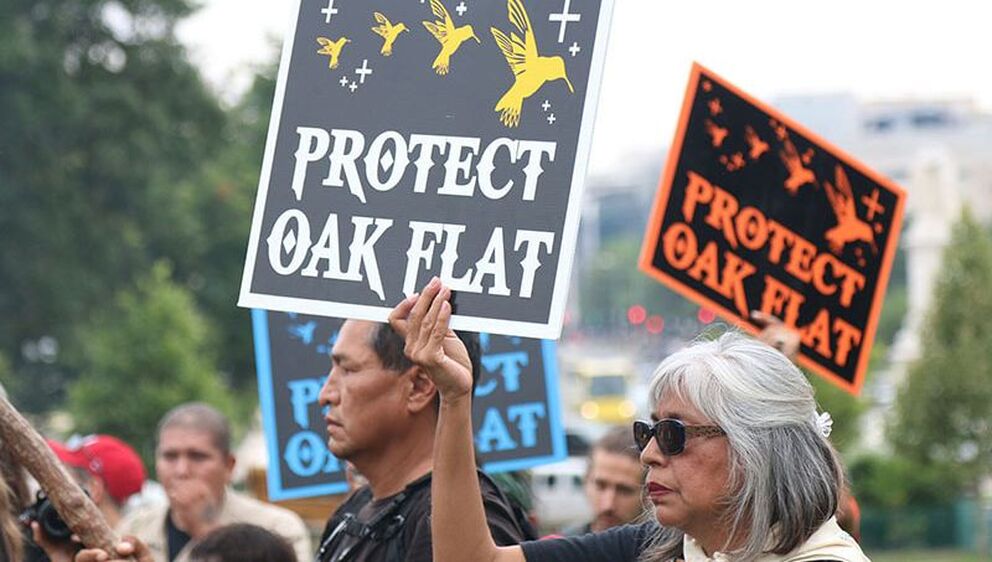|
The Becket Fund just filed a letter in the U.S. Court of Appeals for the Ninth Circuit explaining to its judges how a Supreme Court opinion last week should shape a pending case. Short, terse, straight to the point and with ironclad logic, Becket’s letter gives reason to hope the Ninth Circuit will rule in favor of religious liberty and the Apache people.
The government had argued before the Ninth Circuit that a congressional deal to swap land held as sacred to the Apache religion would somehow not constitute a “substantial burden” on the free exercise of their religion. This claim was maintained despite the deal turning the land over to foreign mining company, which plans to dig for copper and leave a hole as long as the Washington Mall and as deep as two Washington Monuments. Becket’s letter told the Ninth Circuit that on Thursday, the Supreme Court ruled 8-1 in a case in which condemned prisoner John Henry Ramirez asked that his pastor be able to recite a prayer and touch him when he is to be put to death. What does this have to do with sacred land in Arizona? The Ramirez case upholds religious liberty by recognizing in a framework as narrow as an execution chamber that religion is substantially burdened when government actions make following one’s religious beliefs impossible. Before, a district court had rejected Ramirez’s Religious Land Use and Institutionalized Persons Act (RLIUPA) claim because, it reasoned, Texas’s refusal to grant his request did not substantially burden his religious exercise. “But the Supreme Court reversed and ruled for the prisoner,” Becket wrote, “noting the substantial burden was so obvious that Texas had failed to even ‘dispute’ it before the Court.” The government argued in the Apache case that no substantial burden exists if the government is “merely conducting its own affairs.” Yet the Supreme Court found a substantial burden on Ramirez’s free exercise of religion even within the strict execution protocol of the State of Texas, surely a good example of a state conducting its own affairs. Becket writes that “the government hasn’t just made plaintiffs’ religious exercise more costly via penalties or denial of benefits. Rather, it has taken action that will preclude the exercise altogether – handing Oak Flat over to be physically destroyed, thus rendering the plaintiffs’ continued religious exercise there physically and objectively impossible.” “That is a substantial burden.” It is also a binding precedent that should spell good news for the Apache. Comments are closed.
|
Archives
June 2024
Categories
All
|
ABOUT |
ISSUES |
TAKE ACTION |



 RSS Feed
RSS Feed